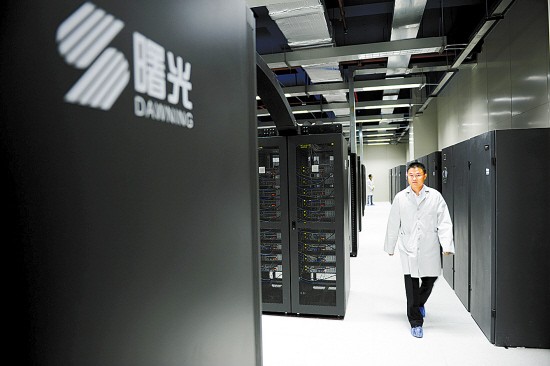Four years after China’s homegrown supercomputer Dawning 6000 was introduced to the market, the tech company Dawning has again begun developing a new generation of supercomputer.
Beijing-based high-tech enterprise Dawning Information Industry revealed that the new supercomputer will be capable of over a 100,000 trillion computing operations per second.
The company's president, Li Jun, confirmed the news, adding that Dawning 7,000 will not be launched in China within two years contrary to earlier reports.
Earlier reports claim that the supercomputer had entered the phase of trial production and assembling, and would meet the public in two years.
Li denied such speculations, saying that Dawning 7000 is not an all-purpose machine and that the development will take longer than expected.
“It serves as a mainframe tailored for certain application. So the development cycle is very long," said Li.
Dawning 7000 promises high-speed communication networks, large-scale storage and application software to better meet the market demand.
The advanced technology is said to benefit enterprises, colleges, research and development institutes, as well as government departments.
The new project will be backed by the Chinese Academy of Sciences, which also helped develop Dawning 6000 in 2011.
Dawning 6000 or Nebulae, was ranked the second in the TOP500 list of the world's most powerful supercomputers in 2010.
Nebulae, the "first supercomputer made exclusively of Chinese components," has a measured Linpack value of 1.271 petaflops per second.
The Dawning supercomputer was made purely out of local microchips. The Godson-powered machine has 3B chips that run at 3.2 gigaflops per watt.
Dawning, founded in 1995, is now considered as a high-computing stock pioneer in the mainland.
Meanwhile, Tianhe-1A, the world's fastest machine, was also made by China. It was developed by NUDT in Hunan’s provincial capital Changsha and largely runs on 14,336 CPUs created by Intel.



























